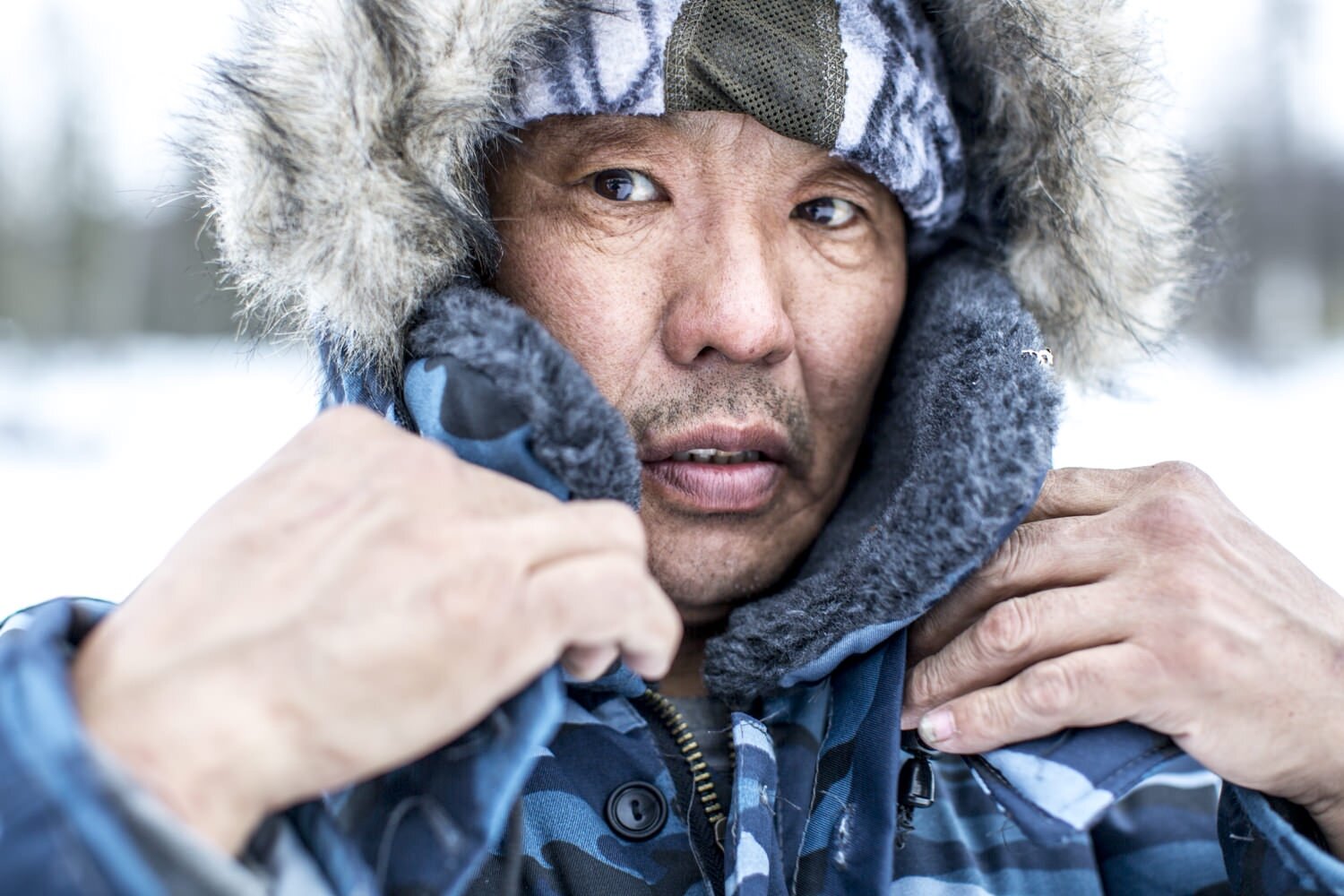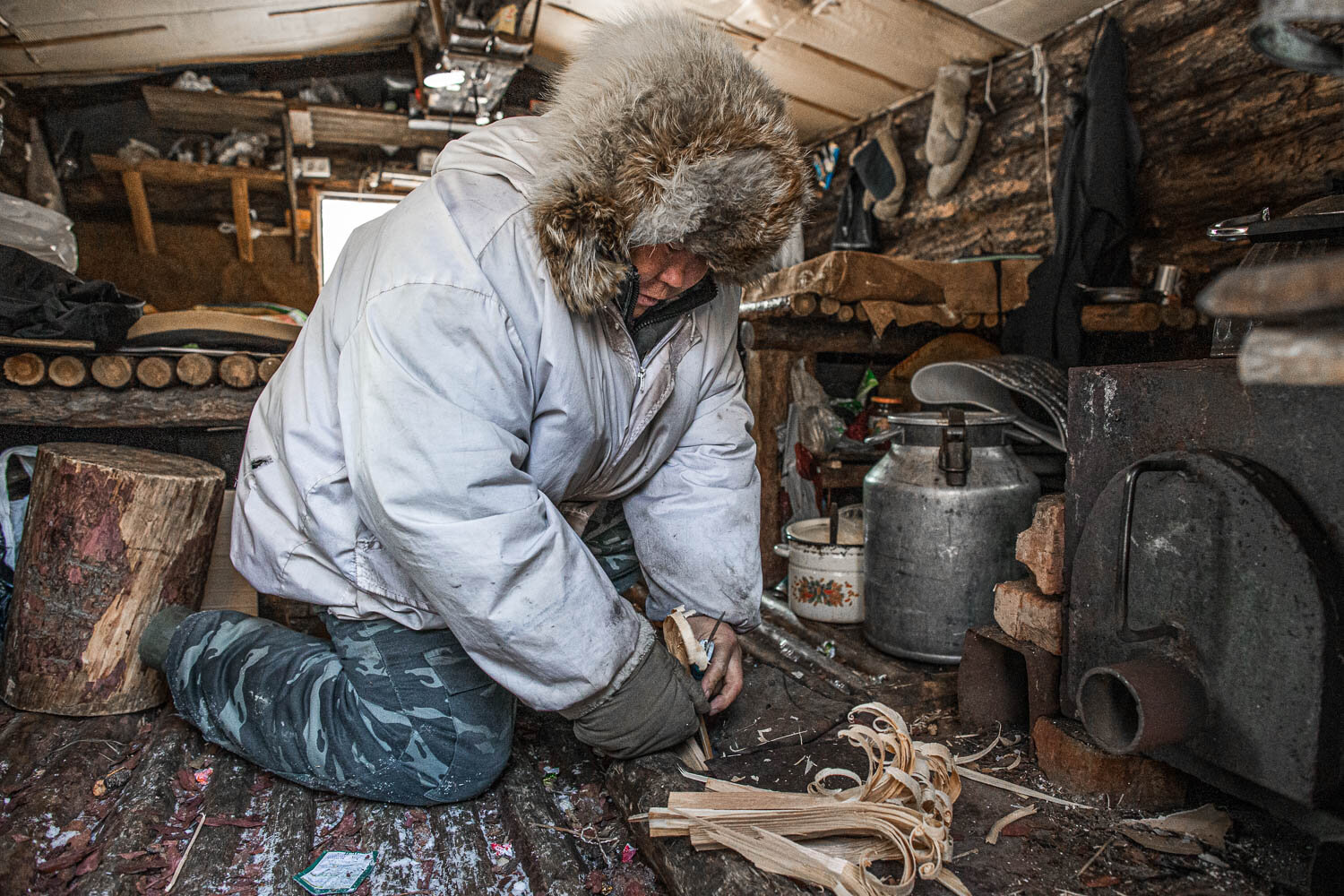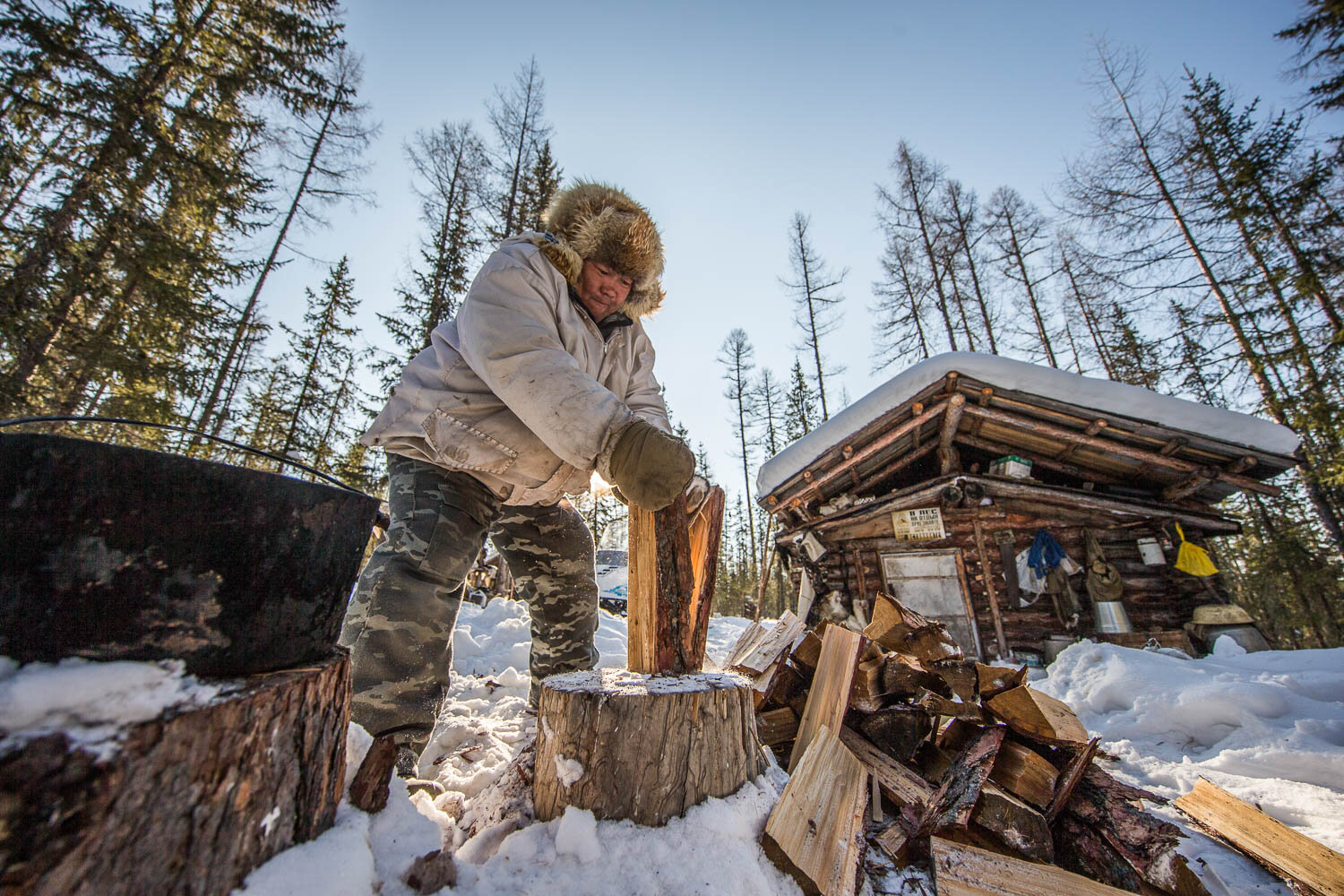
WOLF HUNTING IN SIBERIA
In the Siberian state of Yakutia, the exploding number of wolves is impacting indigenous livelihoods. Meet Ion Maxsimovic, the region’s best Wolf Hunter.
I’m in Nikolai Smetanin’s office, sweating in my thermal underwear. The immaculately turned out politician is talking me through a series of photographs of mangled reindeer carcasses. Outside, children are playing in an elaborate frozen playground; there’s a helter-skelter built from ice, lanes of glistening toboggan tracks and a banana boat being towed behind a snowmobile. Yakutsk is the coldest city on Earth with winter temperatures regularly the wrong side of -50°c. Understandably, there’s a paranoia to the way Siberian’s heat their homes and offices. It makes being inside unbearable.
Nikolai is the head of Yakutia’s government-run hunting department. With a landmass comparable to India, Yakutia is by far the largest non-nation state in the world. Life here, I’m quickly learning, revolves around reindeer, staying warm and diamonds. Mostly in that order. I first heard about the region in 2013 when its president, Yegor Borisov, announced a ‘state of emergency’, calling for international support and setting into motion a bounty system, which has since grown into the largest organised wolf hunt in history.
The problem, Nikolai explains, is that wolves are decimating reindeer herds. 12,000 reindeer were killed last year at a cost of 3 million euros to government caravans and indigenous cooperatives. The government can absorb these costs but across the Taiga, exploding wolf populations are pushing indigenous people into poverty and exacerbating the break down of communities. To see these effects first hand, Nikolai has arranged for me to visit Ion Maksimovic, the region’s most celebrated wolf hunter. Ion killed 23 wolves last year, more than any other hunter, winning 300,000 roubles and a snowmobile.
The next day we load Nikolai’s soviet-era van with fuel, ammunition and, controversially, illegal leg traps. In 2008, Russia, Canada and the EU signed an agreement banning the use of leg hold traps. Europe drafted the bill almost 20 years ago but it took Russia over a decade to sign it. The law came into effect in 2012 and, soon after, wolf populations went through the roof in Yakutia. So much so that Nikolai travelled to Brussels to petition a repeal of the law. A EU representative then flew out to Yakutia to witness first hand what was happening and decided to permit the use of traps as long as they were EU approved ‘humane traps’. According to Nikolai these were never delivered.
I can understand Nikolai’s frustration. As we leave the city of Yakutsk and concrete buildings give way to tundra, it’s difficult to imagine anywhere more culturally and geographically removed from Brussels. Our driver leans over to show me a video he shot on his phone. A reindeer is tied up and thrashing around, an Evenki herder sits astride it, carves a slit into its chest, plunges his hand in and pulls out its heart. He entered the video into a local competition but his entry was disqualified. He didn’t have a model release and the footage raised animal welfare concerns. I offer my condolences and try to forget what I have just seen.























